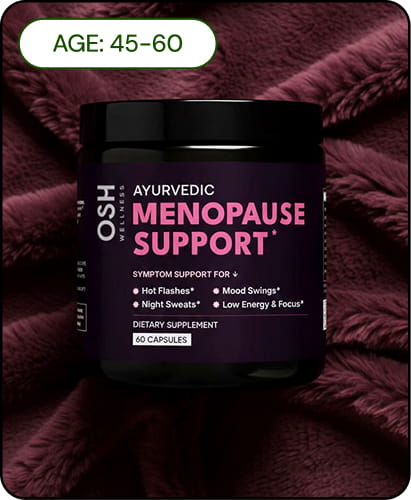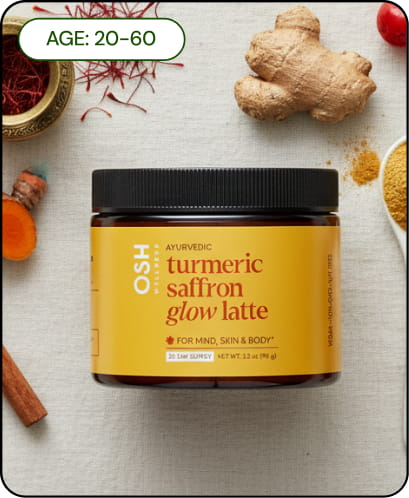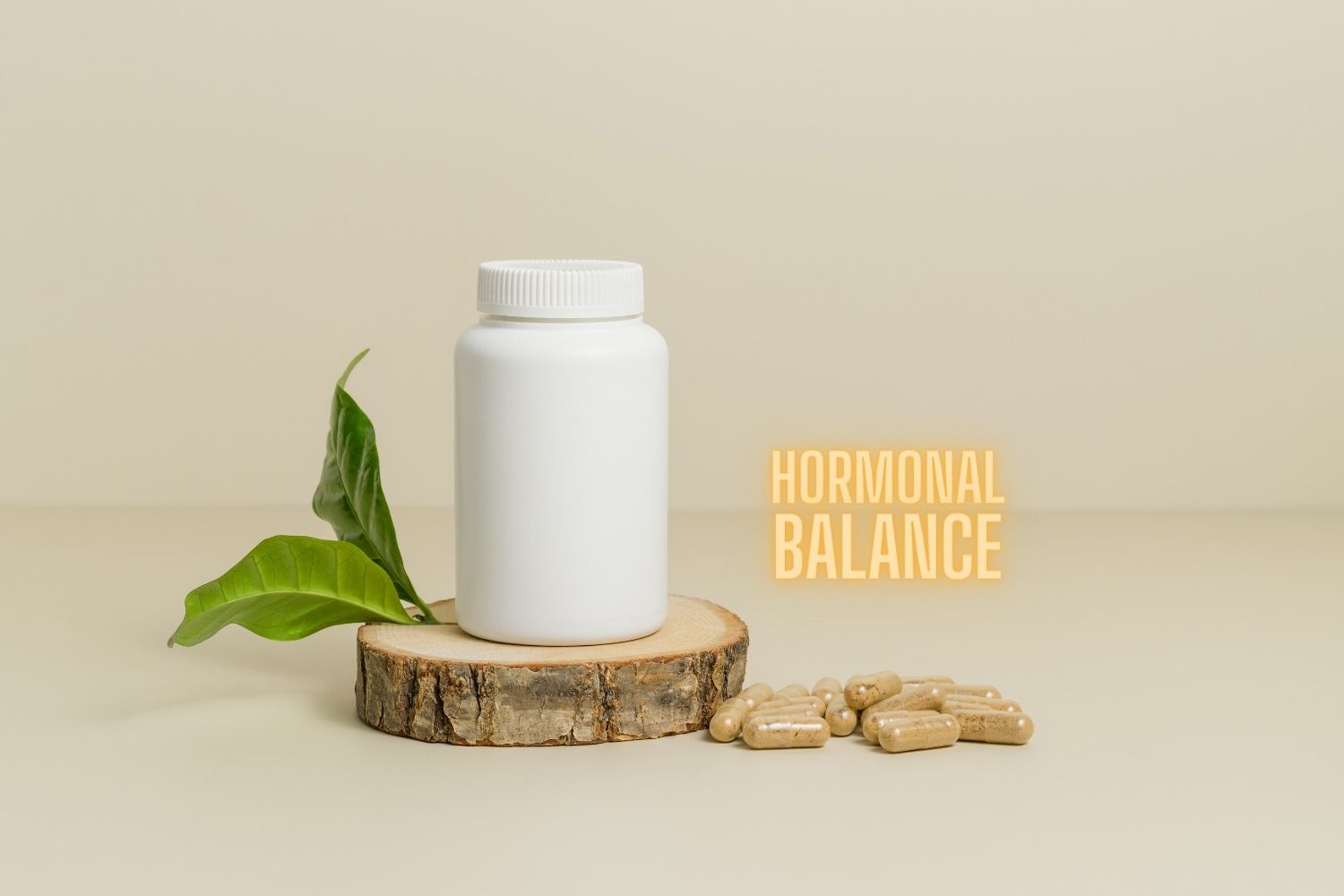Do you know that of the 72.2 million women in the United States aged 15-49, nearly 65% were using contraception? For many women, that contraception comes in the form of birth control, whether it be a patch, pill, injection, or an insertable device. These forms of hormonal birth control are usually sought after for pregnancy prevention. However, they are occasionally used to help with conditions like PCOS.
Those 46 million women using contraception may not realize that when you stop birth control, your body can go through an uncomfortable adjustment period. This withdrawal period is sometimes referred to as post-birth control syndrome, especially when things like mood swings, acne, digestive upset, and intense menstrual symptoms are experienced. What is post-birth control syndrome, and how can you support your body during this time? We’ll cover it all in our guide!
What is Post Birth Control Syndrome?
Post-birth control syndrome, referred to as PBCS, is characterized by its symptoms. These symptoms occur when you stop hormonal birth control. Though women have likely been going through this collection of symptoms since birth control was invented, the term wasn’t introduced until 2008 when Dr. Aviva Romm used it in her book Botanical Medicine for Women’s Health.
In her book, she finally put a name to the experience lots of women have had for months after stopping birth control. However, scientific studies have yet to back up these claims and classify post-birth control syndrome as a real medical condition.
Symptoms of Post Birth Control Syndrome
The hormones from contraceptives don’t take too long to leave your body. However, their effects can last longer, usually for months. Some women may notice that their natural cycle and physiology become disrupted, leading to the following symptoms:
- Anxiety
- Mood swings
- Acne, rosacea, and skin concerns
- Depression
- Lack of mental clarity (brain fog)
- Amenorrhea (cessation of the menstrual cycle)
- Digestive issues
- Headaches
- Hair loss
- Fatigue
- Spotting between periods
- Painful and heavy periods
- Decreased libido
Women who are very in tune with their bodies may also notice adrenal issues, immune imbalances, systemic inflammation, and gut health concerns.
Why Do Women Experience Post Birth Control Syndrome?

The reason why some women expect post-birth control syndrome is thought to be linked to how birth control works. Hormonal birth control contains synthetic hormones, specificallyprogesterone and estrogen. Different forms of birth control use different synthetic hormones.
The combination pill uses estrogen and progesterone, while the mini-pill only contains progestin. They work in slightly different ways, but both prevent conception from occurring. Progestin helps to thicken cervical mucus, preventing sperm from entering the uterus and meeting the egg. In some cases, it may also entirely prevent ovulation, which is how the combination pill works. Both hormones can cause the lining of the uterus not to develop and instead thin, further preventing pregnancy from occurring.
Because you are adding hormones to your body, you are disrupting its natural levels and rhythm. While this does indeed prevent pregnancy, it also means that when you stop the hormones, your body will take some time to get back to “normal.” Your body will need to readjust to not having synthetic progestin and estrogen circulated, and it can take some time to regulate. During this time, you may experience the symptoms mentioned above.
How Long Can Post-Birth Control Syndrome Last?
Most forms of hormonal birth control, including oral contraceptives, leave your system around two to three days after you stop taking the medication. The injection can take longer, usually lasting around eight months to a year. However, just because the hormones have left your body does not mean everything will return to normal.
For many forms of contraception, it can take a woman around three to six months to resume normal ovulation and menstrual cycles. Because the injection provides months of protection with just one dose, meaning it is stronger, its effects on your cycles can last up to a year and a half.
How long it takes for birth control to clear out of your system can depend on a few different factors. Age is one of them. As you get older and your metabolism slows down, it may take your body longer to clear out any remaining hormones. Certain medications can also affect birth control, making it clear out faster or slower. Some women regain regular cycles and ovulation within four weeks, meaning you can get pregnant right away. For others, the process can be slow and uncomfortable, as in the case of post-birth control syndrome.
How Can I Help My Body Regulate and Manage Post Birth Control Syndrome Symptoms?
Thankfully, your symptoms likely can dissipate without treatment. Many women who have taken birth control can go on to have healthy pregnancies. That being said, there is no reason to suffer through symptoms.
If your symptoms seem particularly severe or are not going away on their own, you should speak to your doctor. Missing your period for longer than three months is another reason to reach out to a medical professional. If you’re experiencing unpleasant symptoms or want to support your body as it readjusts, you may want to try home remedies.
Eat a well-balanced diet
Keeping up with your nutrition is key, as many nutrients are necessary for reproductive function. Being overweight or underweight can disrupt menstrual cycles.
Get plenty of rest.
Your menstrual cycle and circadian rhythm share a link; getting adequate rest can help your body function properly.
Try stress reduction.
Stress and anxiety can cause fluctuations in your hormone levels. Engaging in practices like mindfulness and meditation is a great way to combat mood swings.
Try supplements.
Some research has pointed out that hormonal birth control in the form of oral contraceptives may deplete nutrients in your body. Low levels of certain nutrients can lead to a host of symptoms, like low energy, poor skin, and hair health, moodiness, and disrupted menstrual cycles. If you feel that you aren’t getting all the necessary nutrients from your diet, vitamins or a supplement may be able to help.
Osh Wellness Pre-conception cleanse
Supplements like Pre-Conception Cleanse can be particularly beneficial. Womb Rebalance contains helpful nutrients found in plant sources like Moringa and herbs that encourage hormonal balance, cycle regulation, and womb health. Our ayurvedic-inspired blend uses carefully selected herbs that are known to promote ovulation, optimize the health of the uterus, and support positive mood, energy, and libido. It has multiple benefits because post-birth control syndrome is a multifaceted issue.
When you stop taking birth control, it can be normal to experience uncomfortable symptoms. But if you want to restore balance to your body or prepare for pregnancy, a supplement like Osh Wellness Pre-Conception cleanse can help your readjustment period go much more smoothly!
Ayurvedic - Post Pill Support
Formulated by Ayurvedic experts and made with organic, ethically-sourced herbs to support female uterine health.








